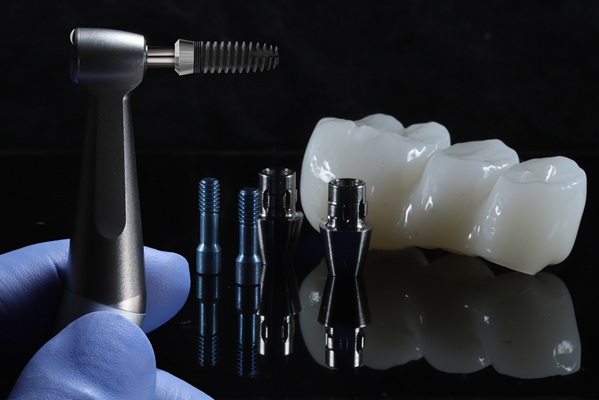What to Do After Damaging a Dental Crown

A damaged dental crown can disrupt daily life and put the underlying tooth at risk for further complications. When a dental crown chips, loosens, or breaks entirely, prompt action can help prevent discomfort, infection, or more extensive dental work. Understanding the proper steps to take ensures the best chance of preserving oral health and restoring function.
Identify the type of damage
Not all dental crown damage requires emergency care, but it is important to determine the severity of the issue. Minor chips or wear may not cause immediate pain, but still require attention to prevent worsening. A completely dislodged crown or one that causes sharp edges, swelling, or sensitivity demands faster intervention.
The type of material the crown comprises also influences the situation. Porcelain, ceramic, and resin dental crowns may be more prone to chipping than metal or zirconia options. Regardless of the material, any visible damage or discomfort signals a need for professional evaluation.
Avoid further damage or discomfort
Until the dentist can assess the dental crown, taking steps to protect the area minimizes the risk of complications. Patients should also avoid chewing on the side of the damaged crown and stick to soft foods. Extremely hot, cold, or sticky items may irritate the exposed tooth or dislodge the crown further.
If a dental crown falls off completely, patients should gently clean and restore it in a safe container. Attempting to reattach it without professional guidance could cause additional damage to the structure or soft tissues. Over-the-counter (OTC) dental cement may offer temporary relief in some situations, but this solution is not a substitute for professional dental care.
Schedule a dental appointment promptly
Even if the dental crown appears stable or causes no pain after using OTC dental cement, it is essential to contact the dental office as soon as possible. Delaying care increases the risk of decay, infection, or structural damage to the underlying tooth. In some cases, bacteria can enter through small cracks or exposed margins and create complications that require more complex treatments.
During the visit, the dentist will examine the dental crown and tooth using visual inspection and possibly diagnostic imaging, like X-rays. Treatment options vary depending on the extent of damage. A small chip may only need polishing or bonding, while a fully compromised crown may require full replacement. If the supporting tooth shows signs of decay or structural weakness, additional procedures such as core buildup or root canal therapy may be recommended.
Prevention for the future
Even after seeing a general dentist to restore or replace a dental crown, patients need to take precautions to ensure the lifespan of the new crown. Consider the following precautions:
- Wear a custom night guard if clenching or bruxism (teeth grinding) is present
- Avoid using the teeth as tools to open packages or biting hard objects
- Maintain proper oral hygiene to prevent gum disease, which can weaken the teeth underneath the crown
- Schedule regular dental checkups to monitor the condition of crowns and surrounding teeth
Restore comfort and function quickly at Bitterroot Valley Dental Care
A damaged dental crown does not need to lead to long-term problems if managed promptly and correctly. Have you damaged or lost your crown? Contact our Stevensville office immediately to schedule an appointment.
Request an appointment here: https://bitterrootvalleydentalcare.com or call Bitterroot Valley Dental Care at (406) 625-0382 for an appointment in our Stevensville office.
Check out what others are saying about our dental services on Yelp: Dental Crowns and Dental Bridges in Stevensville, MT.
Recent Posts
Dental crowns are the most popular way to restore teeth that are in bad shape due to decay, injury or other imperfections. Modern-day dentistry has allowed for the evolution of many different material choices, all of which offer their own pros and cons. Keep reading to learn about three options that general dentists recommend. Outlined below…
A dental crown is used to restore teeth that are in bad shape. Oftentimes, they are needed for teeth that have become cracked, chipped or broken. Additionally, general dentists recommend them for teeth that have severely decayed due to an infection. While they are one of the most common dental restorations, many wonder how long…
Understanding the reasons for dental crowns allows those in need of restoration treatment to know if this treatment is the right option for them. Asking a general dentist about dental crowns allows individuals to get the detailed information they need, as general dentists perform restoration services on a daily basis, thus making them experts on…
Dental Crowns are a popular restoration option used by general dentists. Restorations are often needed when teeth are in bad shape, as they help bring the tooth back to life, thus encouraging good oral health. Good oral health then translates to one's overall health. According to the American Dental Association, dental crowns are a cover or…


